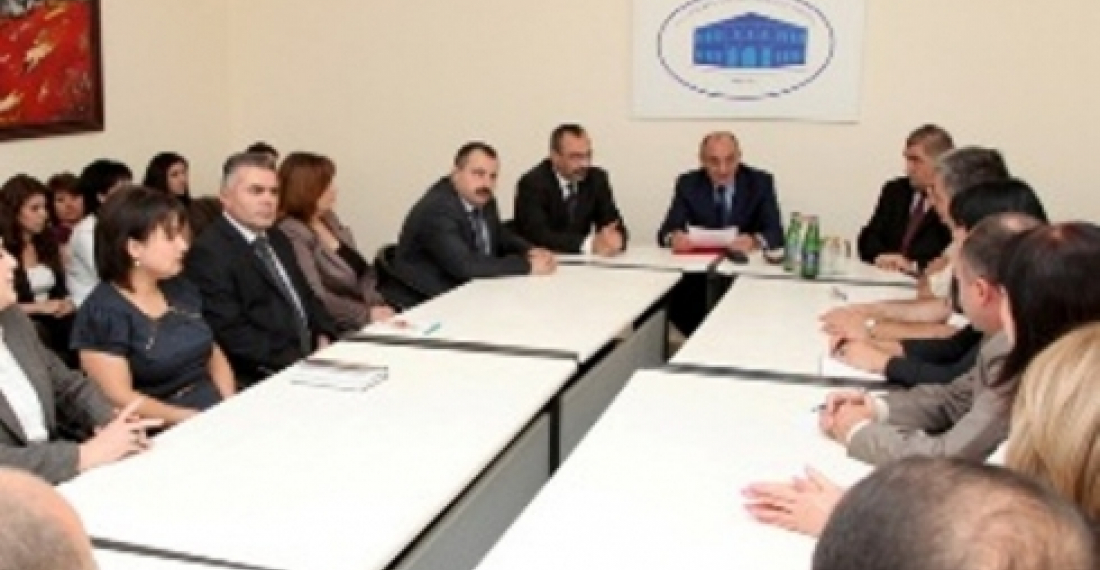The President of the self declared Nagorno-Karabakh Republic, Bako Sahakyan, has appointed a new government for the territory. The new Ministers include a new foreign minister, Karen Mirzoyan.
Sahakyan on Saturday visited the Ministry to introduce the new Minister to the staff.
The Ministry had been without a Minister for some time and the job was being performed by an acting Minister, Vassily Atajanyan. Sahakyan told the Ministry staff that "the appointment of Karen Mirzoyan will give a new quality to the ministry’s works."
The self declared Nagorno-Karabakh Republic is not recognised by any country. The Ministry of Foreign Affairs however co-ordinates the international work of the territory, including with the Armenian diaspora communities. Karabakh also has relations with other self declared and unrecognised, or partly recognised, territories such as Abkhazia and South Ossetia. The NKR Foreign Ministry also co-ordinates the visits of foreign delegations to Nagorno Karabakh.
source: commonspace.eu
photo: Bako Sahakyan introducing the new Foreign Minister of the self declared Nagorno-Karabakh Republic to members of the Ministry staff on Saturday, 22 September 2012 in Stepanakert. (Picture courtesy of news.am)







